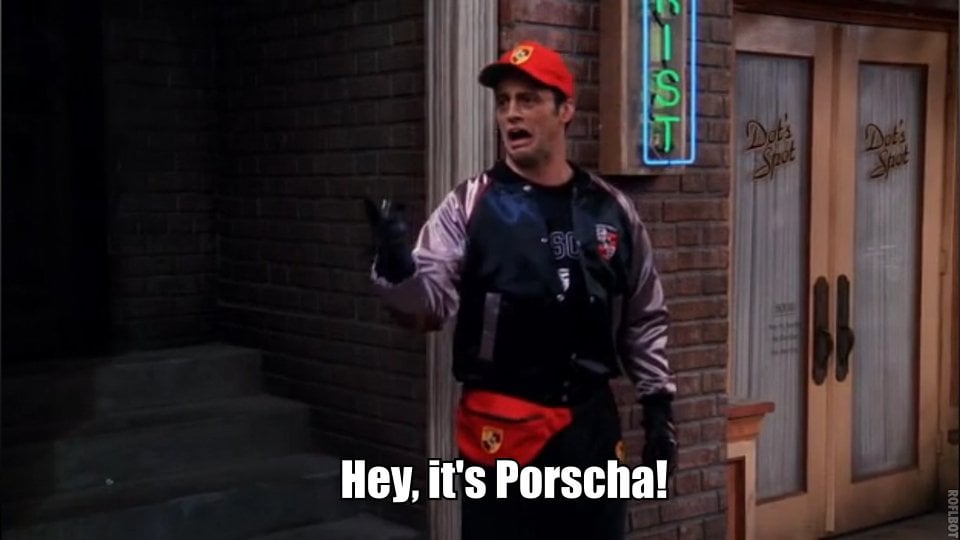Wait until he notices the C’s in “Pacific Ocean”.
I never did understand how an ocean can contain multiple seas.
Did you recently become a father? Because that was one of the better dad jokes.
I earned my dad joke card in 1985 when I came around the corner carrying a joke book and like 7 kids groaned.
is old
That’s why I prefer the Dead Sea.
Oh, U
In terms of geography, seas are smaller than oceans and are usually located where the land and ocean meet. Typically, seas are partially enclosed by land. Seas are found on the margins of the ocean and are partially enclosed by land.
Give me more of these!
It’s the same in German: /mɛʁˈt͡seːdəs/
Despite what other commentators say who are evil and eager to spread lies about the German language
However, in Spanish, which is the name’s language of origin despite being a German car, they’re the same. All e as in red. Mercedes.
True, it’s a common female name, or was idk. Iirc the car is named after the daughter of the inventor. The German pronunciation is the butchered version of the Spanish first name so I’m on no moral high ground
Iirc the car is named after the daughter of the inventor.
Not the inventor and it’s a bit more complicated. Emil Jellinek was selling Daimler cars, and had them participate in races for publicity. His daughter was called Mercédès Adrienne Ramona Jellinek. The historical record is a bit unclear, either he used her name as a pseudonym for a racer, or he christened one of the cars after her. In any case they won that race, gaining the name some notority which he and the Daimler-Motoren-Gesellschaft used for further marketing later on.
Phonetical consistency…
Nunca lo entenderías…
Märzehdis
E is super flexible in German
e, ae, oe, ue, eu, ie, ei, ee all make distinct consistent sounds
On a phonetic level, some specialist will be able to discern the different E-sounds, but they’re still very similar. It’s definitely not like the English pronunciation where it’s completely different sounds.
It’s basically the three E sounds we have in German (short, long and “unstressed”) but I see that to the untrained ear, this isn’t obvious
The difference is so narrow that I wouldn’t notice any difference apart from the length, the first and last e are very slightly shorter than the middle e. And of course you have the usual going-down-with-your-voice-at-the-end-of-the-word
Yes, we often call them “long” and “short” E but the short E is actually halfway to A. It’s a different vowel even though it’s written the same. The last E is the vowel we often have in unstressed syllables like gekommen, same in English upon, about. We write it as E but it’s basically the most relaxed vowel possible.
Look at this vowel chart to see and hear the differences.
Wouldn’t e halfway to a be ä
The short e in Mercedes is much closer to e than to ä
Yesn’t.
E and Ä are basically the same sounds but you use the letter Ä to indicate that the root word has an A. Fähre is derived from fahren so it has Ä but it’s the same sound as the first E in Mercedes.
At least in Austria the first e in Mercedes is much closer to e than to ä.
On the other hand many actual ä are also much closer to e than to ä in Austria so ig it might be different in Germany.
not true in German, there all Es sound exactly the same
When I, as a German speaker, pronounce Mercedes, every e is slightly different.
Same in Spanish
Same in Czech
Same in Italian
Same in Russian
At this point this thread is just making fun of English having no phonetical uniformity at all.
The first E in Mercedes sounds slightly different from the other two in German, mostly because the rhotic sound [r] modifies the tongue placement for the preceding E, forcing you to say it as either an open-mid front unrounded vowel [ɛ], or a mid near-front unrounded [ɛ̽]. The [r] prevents the vowel from being a Close-mid front unrounded vowel [e] like the 2nd and 3rd occurrences of E.
Or more simply, the first e sounds more like “bed” while the second and third sound more like “may”, assuming you’re reading this with a standard American dialect.
Not quite. The middle e is longer than the other two.
Me as a kid, having just learned english, listening to Janis Joplin: “What the fuck is a mercy dispense!?”
When you pray for the lord to have mercy, they have to dispense it somehow. That part made sense to me as a kid.
However why would God have to buy one? And from whom? Who manufactures these mercy dispensers for God? Why wouldn’t God just make them into existence?
When I learned that it was Mercedes Benz I came to understand that even God needs to abide by trademark law.
Not in French they aren’t.
Same in Poland.
In French they can be. In France, no because they don’t have a large repertoire of sounds. But in Quebec, all 3 E sounds different.
Oiseaux.
Edit: the joke is that no vowel in oiseaux is pronounced the right way.
Mec je parle de Mercedes. 🙄
Mère C’est D’aisse ?
Le meme parle de la prononciation des “e” dans le mot Mercedes, pas des consonnes.
Perso je prononce chaque e différemment ?
C’est pas une énorme différence pour être honnête.
Pour moi oui, mère c’est d’aisse, pas meurceudeusse haha
But only in English. In the original German, all three e’s are actually the same.
Diese Kommentarsektion ist nun Eigentum der Bundesrepublik Deutschland
Häh wie sprichst du das denn aus? Offensichtlich überhaupt nicht /mɛʁˈt͡seːdəs/ wie alle anderen? In Spanisch sind sie gleich, in Deutsch alle unterschiedlich, genau wie in Englisch.
Wenn du den spanischen Frauennamen meinst, dann sind das verschiedene Vokale, aber der Name der Automarke ist so voll eingedeutscht, der einzige Unterschied ist vielleicht noch, dass das mittlere e ein bisschen länger ist.
Nein, andersrum wird ein Schuh draus.
Wenn du den Spanischen Frauennamen normal Spanisch aussprichst sind das drei ungerundete halbgeschlossene Vorderzungenvokale.
Wenn du die Deutsche Automarke normal Deutsch aussprichst ist es erst ein ungerundeter halboffener Vorderzungenvokal, dann ein ungerundeter halbgeschlossener Vorderzungenvokal und am Ende ein Schwa.
Wenn du die Deutsche Automarke normal Deutsch aussprichst ist es erst ein ungerundeter halboffener Vorderzungenvokal, dann ein ungerundeter halbgeschlossener Vorderzungenvokal und am Ende ein Schwa.
Wenn Du meinst. Für mich macht das keinen Unterschied.
The original is Spanish, and the Es are pronounced the same
What the hell, it’s originally Spanish where all the Es sound the same, then it got popularized by a German brand, where all the Es sound the same, how did it become Merceydees in English?
Merce deez nuts
Got’em!
Not if you pronounce it the way Germans do

If you add Benz you get a 4th E sound
mercedeez nuts lmao gottem
Abraham is another
Murr-say-deez!
I’m fighting an urge right now…
Almonds?
In Spanish the e’s are pronounced the same way, and the same applies for German! It’s only in English that the e’s are all pronounced differently! English is such a weird language, I love it but it’s things like this which are hilarious to me.
















